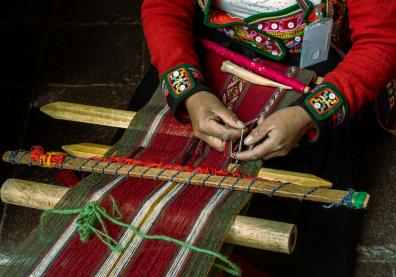JPCI 2025 - Handmade: textile techniques and transmission

Fabric arts and crafts have been granted Intangible Cultural Heritage (ICH) status by UNESCO for several years now. Traditional silk from Central Asia, pagne weaving in Côte d'Ivoire and Palestinian embroidery are all classified as ICH, and bear witness to practices that are rooted in societies and eras, and whose leg continues to be perpetuated in an ever-changing world.
Textile arts practices are made up of hundreds of different techniques, inherent to each culture and population. Among them are weaving, dyeing, lacemaking and printing, all skills that tell stories, embody identities and reflect worlds.
Today, the preservation of these living heritages rests on an essential challenge: transmission. Teaching these techniques, sharing them and making them evolve guarantees their vitality, while creating bridges between past and present.
Moderation: Noémi Godefroy, Senior Lecturer at Inalco, Japanese Studies Department
Interventions:
- Akiyo Kajiwara, textile design artist
- Anne Grosfilley, specialist in textiles and fashion in Africa
- Hélène Trébuchet, doctoral student specializing in the textile arts of Taiwan